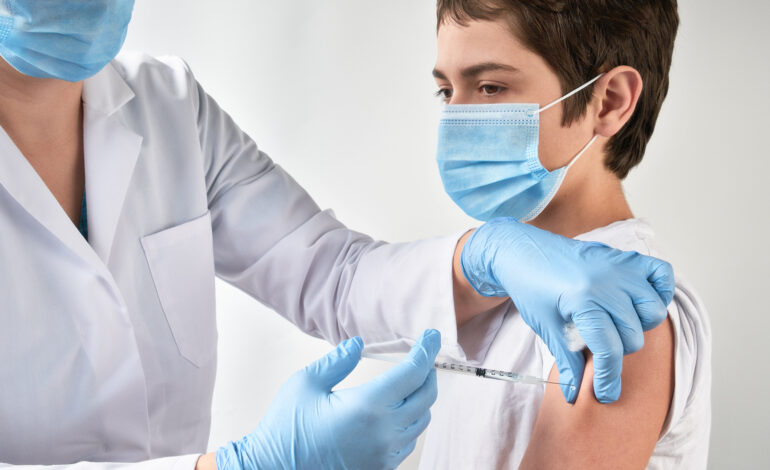LANSING — Providers in Michigan can now begin vaccinating adolescents to protect them from the COVID-19 vaccine.
The Michigan Department of Health and Human Services (MDHHS) announced Wednesday that providers can begin vaccinating adolescents 12 to 15 years of age, following a vote by the Centers for Disease Control and Prevention’s (CDC) Advisory Committee on Immunization Practices supporting the use of the Pfizer vaccine for that age group.
The CDC says the COVID vaccine can now be administered at the same time, or on the same day, as other vaccines in both children and adults.
On Thursday, the MDHHS will issue guidance to vaccine providers on the use of the Pfizer COVID-19 vaccine for the age group. The guidance follows authorization of the vaccine for this age group by the Food and Drug Administration (FDA) under an expanded emergency use authorization (EUA). Providers can begin vaccinating this age group as soon as Thursday. Appointments and walk-ins will be available beginning tomorrow at Ford Field through May 17. Text EndCOVID to 75049 or call 888-535-6136 (press 1).
The FDA has determined that the known and potential benefits of this vaccine in individuals 12 years of age and older outweigh known and potential risks, supporting the vaccine’s use in this population. The available safety data to support the EUA in adolescents down to 12 years of age include 2,260 participants ages 12 through 15-years-old enrolled in an ongoing randomized, placebo-controlled clinical trial in the U.S. Of these, 1,131 adolescent participants received the vaccine and 1,129 received a saline placebo. More than half of the participants were followed for safety for at least two months following the second dose with no significant adverse effects.
The Pfizer vaccine is administered as a series of two doses, 21 days apart, following the same dosage and dosing regimen for those 16 years of age and older. The most commonly reported side effects in the adolescent clinical trial participants, which typically lasted one to three days, were pain at the injection site, tiredness, headache, chills, muscle pain, fever and joint pain. With the exception of pain at the injection site, more adolescents reported these side effects after the second dose than after the first dose.
The MDHHS says that although most children with COVID-19 have mild or no symptoms, some children can get severely ill and require hospitalization. In Michigan, more than 102,000 cases and 11 deaths have been reported in ages 10 to 19. Children and adolescents generally have milder COVID-19 disease as compared to adults. There have also been rare, tragic cases of children dying from COVID-19 and its effects, including multisystem inflammatory syndrome in children, or MIS-C. From March 1, 2020 through April 30, 2021, approximately 1.5 million COVID-19 cases in individuals 11 to 17 years of age have been reported to the CDC.
Michigan has seen consistent COVID-19 outbreaks in school districts once those districts began in-person learning activities and sports earlier this year, with 81 outbreaks tied to K-12 settings in the first week of April alone, pushing Lansing to ask districts to go on a recommended two-week pause.
“It’s great news to have a safe and effective vaccine available to protect younger Michiganders as we work to eliminate COVID-19 once and for all,” Governor Whitmer said. “We are incredibly proud that the Pfizer vaccine, which is now approved to protect our children, is manufactured right here in Michigan. As a parent, I encourage all parents with children in this group to have a conversation with your family doctor about the vaccine as soon as possible.






Leave a Reply